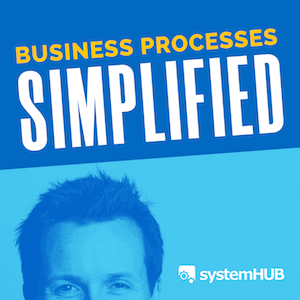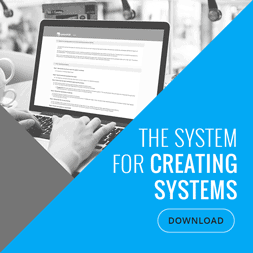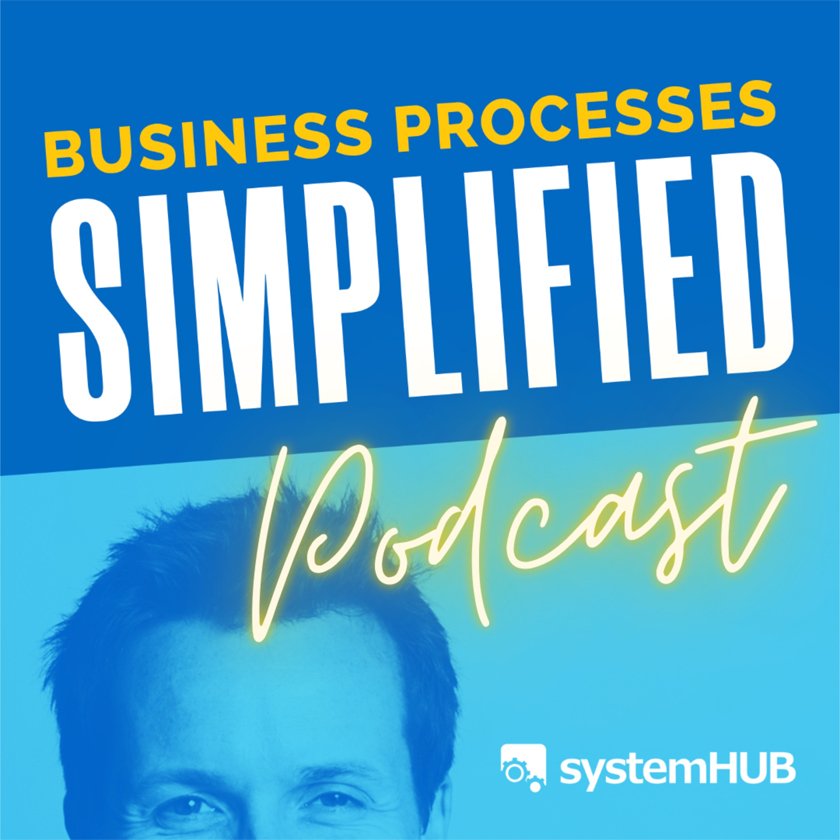Today’s Host, Tony Fraser-Jones
Tony Fraser-Jones, founder of Profitable Tradie and a leading expert in helping tradies systemize and scale, sits down with David Jenyns, founder of systemHUB and author of “SYSTEMology” and the new “Systems Champion.” With experience working alongside Michael Gerber (author of The E-Myth), David brings a practical, boots-on-the-ground approach to systems implementation, making it especially relevant for trades and service businesses looking to create real freedom and predictable growth.
Interview Takeaways:
1. The Hidden Cost of No Systems
Without robust systems, businesses, especially those in trades, become heavily key-person dependent, creating stress and inefficiency. Owners often work incredibly long hours because they feel they’re the only ones who can handle certain tasks. This leads to subconsciously pushing away work, delivering weaker proposals, and leaving significant money on the table, all because taking on more jobs feels overwhelming without proper processes.
2. The Systems Champion Solution
The biggest breakthrough insight is that business owners shouldn’t be the ones systematizing their business. They need a Systems Champion, a right-hand person who becomes their most valuable team member. The first quarter of the new book guides business owners on what a Systems Champion is and why they need one, while the rest serves as a complete manual for the Systems Champion themselves.
3. The Three Pillars Framework
All system implementation challenges can be solved by strengthening three pillars: Documentation, Tools, and Culture. These address the three main excuses team members give for not following processes: “I didn’t know how,” “I didn’t know it was expected,” and “I didn’t want to.” By reinforcing these pillars, businesses eliminate excuses and create a foundation for consistent execution.
4. The SYSTEMology Seven-Step Process
The proven methodology starts with identifying 10-15 critical systems using the Critical Client Flow, then progresses through: finding the right person who knows the task, extracting knowledge through recording, organizing information centrally, integrating with team buy-in, scaling beyond initial systems, and finally optimizing for efficiency. This approach focuses on repeatability first, perfection later.
5. Systems as Business Leverage
Systems make invisible processes visible by documenting existing habits and best practices. They serve as the blueprint of your business, extracted from your head and made accessible to your entire team. This creates the leverage needed to scale beyond the business owner’s personal capacity while maintaining quality and consistency. For trades businesses, this might mean standardizing quoting, scheduling, or site handovers so work can be delegated without sacrificing quality.
6. The Minimum Viable System Approach
Rather than overwhelming businesses with complex implementations, focus on 5-10 essential systems per department that directly impact core deliverables. For tradies, this might include job handover processes, standardized pricing systems, AR processes, invoicing procedures, and quality assurance checklists. Even 4-5 well-implemented systems can dramatically impact results and profitability.
7. Culture Trumps Everything
Building a systems culture requires clear expectations, accountability, and consistent enforcement. The phrase “what you tolerate never changes” is critical – businesses must give team members every opportunity to adapt but draw clear lines about following processes. New hires who only know your systematized way of working integrate seamlessly, while existing staff may need more support or ultimately replacement.
8. AI as a Systems Amplifier
Artificial intelligence revolutionizes system creation by making documentation faster and easier than ever. Business owners can record processes, transcribe them, and use ChatGPT to draft procedures quickly. AI also helps analyze data for inconsistencies, suggest process improvements, and identify automation opportunities. The key is having clear processes first, then asking AI how to make them faster, cheaper, and better.
9. The Technician’s Entrepreneurial Seizure
Many trade business owners excel at technical work but struggle with the transition to running a business that delivers that work. They often resist delegation because they believe nobody can perform tasks as well as they can. The solution involves recording their “magical” processes multiple times, transcribing and documenting them, which reveals the systematic nature of what they do instinctively.
10. Systems Enable True Business Freedom
The ultimate goal isn’t just growth, it’s creating genuine business freedom. Many business owners enter entrepreneurship seeking freedom but end up trapped because their business only works when they’re working. Robust systems, executed by capable team members and guided by a Systems Champion, create the choice to work in, on, or away from the business while maintaining operations and profitability.
Thank you for listening!
Thanks for joining us for this episode. Do you have any questions or feedback you'd like to share? We'd love to hear it! Let us know in the comments section below.
If you enjoy listening to this podcast, please share it on Facebook and leave an honest review on iTunes. We'd love to know what you think.
Remember - the next system we share could be just the one you been looking for, so subscribe on iTunes so you can get the latest episodes as soon as they’re published.

About The Show
Business Processes Simplified
We interview industry experts and have them share their best small business systems and processes. This is the quickest, easiest and most efficient way to build a systems centered business.













